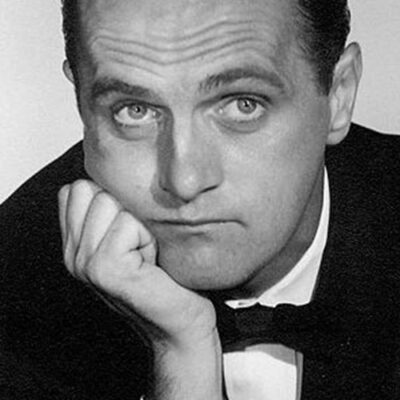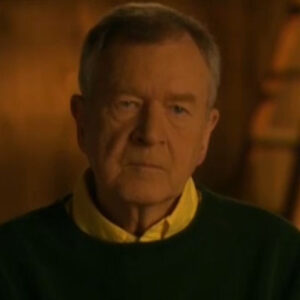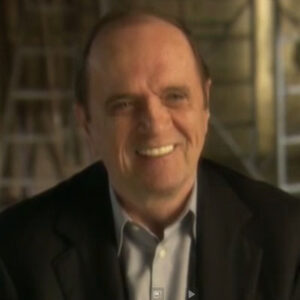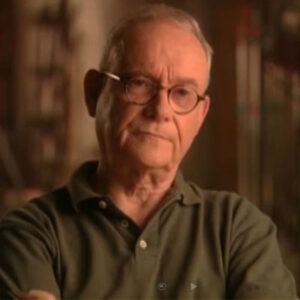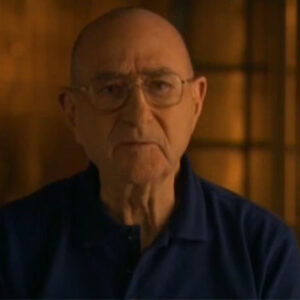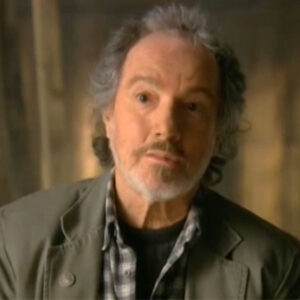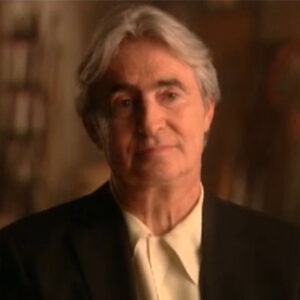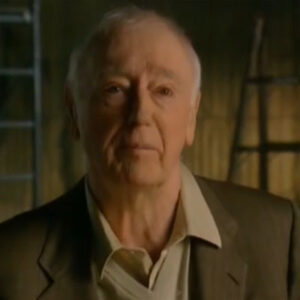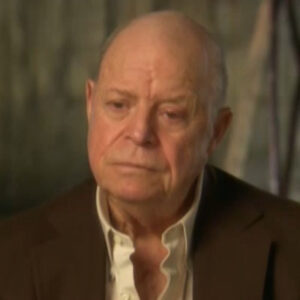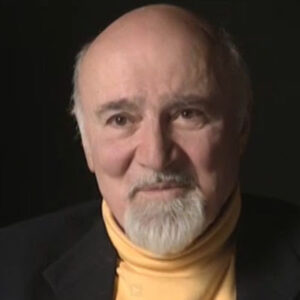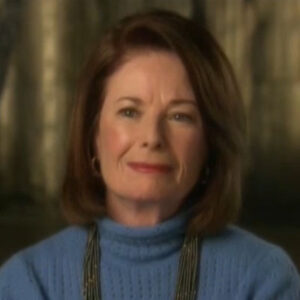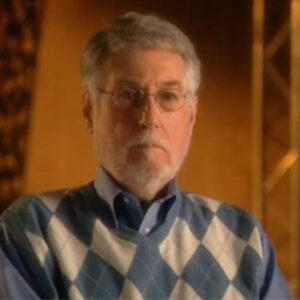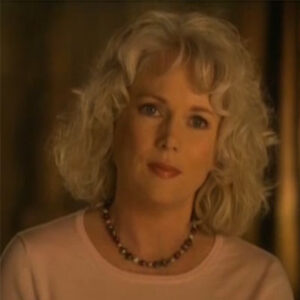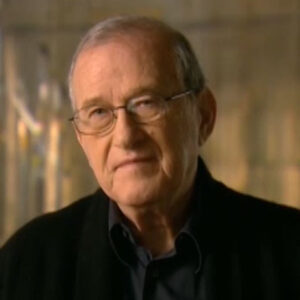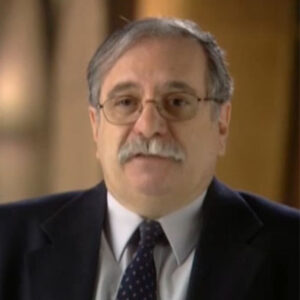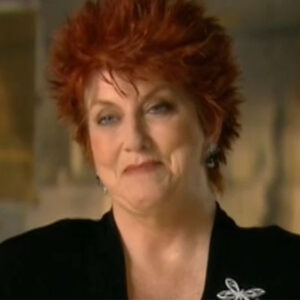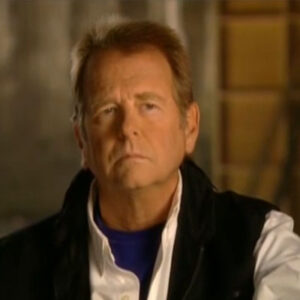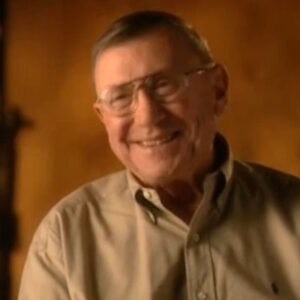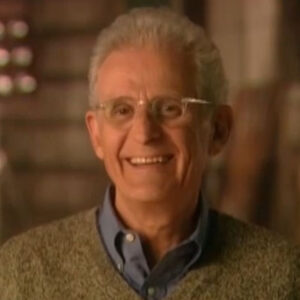Interviewer: If you could mention that you did the movie Elf around when that was.
Bob Newhart: Oh, yeah. I did a couple of movies, I did I did some voiceovers for Disney pictures, the rescuers, the rescuers down under. And then did wonderfully realize movie called Elf. With Will Ferrell and James Caan and Mary Steenburgen then asked her on. And it was just a delightful experience. It wasn’t a wonderful story about Christmas and and how. How we knew people got on with the Christmas spirit. And it was all based on a book. Jon Favreau was the director and. And he’s really written on several levels. I think it’s some I went to see a private screening of it with a with some of my granddaughters. And they enjoyed it. But my daughters enjoyed it even more. So it was written on on several levels.
Interviewer: I was going to ask you about having grandkids was any part of the decision.
Bob Newhart: You know, I love that. I love the story. It was almost like a routine. And then it was. How does an adoptive parent pop elf tell this six foot, three inch. Will Ferrell, that he, in fact, is not an elf, as he has believed himself to be. And then then well, goes to find his real father in New York as James Caan. The kids had something to do with it. I mean, I liked the story anyway, and I liked playing it. I liked the way it was shot, which was which they call force perspective, which is as opposed to. Digitally. And the granny and the grandkids, you know.
Interviewer: What do your grandkids know about your career?
Bob Newhart: Well, Anabella is, I think is somewhat confused. She knows that I’m Poppy. She also knows that I’m something called Bob Newhart, whatever that is. And she also knows that I’m an elf. So and her and her little world, it’s kind of. Overload. It’s too much for her to really deal.
Interviewer: That’s so cute. If you can just say? I’d love that, Anabella. One of my granddaughters.
Bob Newhart: Oh, yeah. Anabella is one of my granddaughters, has somewhat. Somewhat confused about. Poppy, who is it? That’s me as a grandfather, someone. I’m also someone called Bob Newhart who appears on television. And and I’m also. Pop elf. So I think she’s a little confused.
Interviewer: Why do you mean the fact that you’re we talked to you about that you’re still performing and I just wondered if you could talk about for a comedian, someone who started out and always and always will be a comedian. Is that is the hearing of laughter and making people laugh? Is that what motivates you? Is that something that you just.
Bob Newhart: Well, as I as I’ve been quoted as saying, indeed, the alternative to Sunset Boulevard. The alternative is sitting in a darkened Roman. Eric von Stroheim comes in and asks which episode of The Bob Newhart Show or Newhart you want to watch today? It’s where you started. It’s. I mean, the travel is inconvenient, the travel industry is the worst part of it. Getting the airport two hours ahead of time and going for security and miss flights and the misconnections and the lost luggage, but. But once you’re there and once you’re standing on stage, it is worth all the all the effort to get there.
Interviewer: What is that feeling for most of us who will never happen? Making people laugh in a room like that? It must be.
Bob Newhart: Well, you feel. You feel powerful. People more and more come up to me and saying thank you for all the laughter and. And my reaction is always the same. It was my pleasure. And that’s that’s the truth. It was my pleasure. And I enjoyed. Doing what I did as much as I enjoyed watching me do what I did.
Interviewer: What do you think? I mean, do you think you could have done anything else? Is there what is what has compelled you to choose this life as it wasn’t always easy and it’s. It’s a gamble and all those things. So.
Bob Newhart: I guess it’s a gamble. I mean, I don’t. I don’t think of myself as a gambler, but I guess I’m a gambler. I guess it’s that risk. Of is it going to work tonight. That’s the adrenaline that’s that’s the. That’s the high is when it does work. And. Correspondingly, the low is when it doesn’t work. And if you face that each and every time.
Interviewer: Do you think you could have been happy doing anything else?
Bob Newhart: Why would I?
Interviewer: Could you have been happy doing anything else?
Bob Newhart: I don’t think I could have been. As happy.
Interviewer: I’m sorry. Doing something else?
Bob Newhart: I can’t imagine doing something else if I hadn’t done this. I can’t imagine being as happy. And fortunately, I’ve been able to do this.
Interviewer: What what role do you think comedians play in our society, for lack of a better word? You know, they perform a service. I mean, do they give voice to. I don’t know.
Bob Newhart: I think. When comedy is at its best, I think it’s it’s helping people get past. A particularly painful. Point in time. I remember. I was scheduled to do a show in Orange County with Dinah Shore. It was a week that JFK had been shot. And so we were dark for like two days, three days and. The fourth day, the promoter called up and he said, you know, I’m really it’s really hurting me at the box office. Do you think you and Diana could do a show tonight and. And I said, well, if dinosaur linked to do it, I certainly am willing to do it. And had some trepidation about. The audience reaction, what it would be like. Well, went out and did the show. He was one of the best shows I’ve ever. One of the best received shows I’ve ever done. People had to get away from that horrible news that they were hearing. Unendingly. And as you remember. The president was killed in Officer Tippets was shot, and then then Lee Harvey Oswald was was arrested. Then Jack Ruby shot Lee Harvey Oswald. Then the picture of John John saluting the casket. People had to get away. They had to, and it taught me that. That’s what comedy does. It helps people. Get over some of the rough spots and. In their lives.
Interviewer: What makes you laugh? What kinds of things make you.
Bob Newhart: Oh. All kinds of things. I enjoyed them, Aqab. Full of torture. It is a way of dealing with. It is trivializing. Something very important. I don’t know. I don’t know why that. It kind of. And again, it helps you get past it. It’s in the insensate. The insensitivity of some people. And you’re kind of highlighting their insensitivity to. Some psychiatrist going to have to figure out why.
Interviewer: I talk to writers who say they would kill themselves if they couldn’t write or they would go insane if they couldn’t write or, you know, artists if they couldn’t paint. Is it the same for you in that way? Almost gone crazy without being able to laugh?
Bob Newhart: I think in my case, I think I probably would have become a comedy writer. Maybe so. But then again, that would still be comedy. I’ve been very lucky that I don’t have to. I don’t have to dwell on that.
Interviewer: Tell me who your best friend is.
Bob Newhart: Well, Ginny, my wife is my best friend, of course.
Interviewer: Do you have your of your social friends and your comedian friends? Do you have a.
Bob Newhart: Well, Don Rickles, we win and we we take vacations together. And. We have a great time. We enjoy each other’s company. We’re we’re I guess we’re opposites. I make him laugh. He makes me laugh. Tim Conway is a good friend. Tim Sharkey to the Condoling Martin.
Interviewer: What’s it like to travel with Don Rickles?
Bob Newhart: Well, he’s heard me say this before, but it’s like people say, how can you possibly travel with him? You know, I mean, how can you 24 hours a day? And I explained that it’s like Muzak. It’s just. It’s kind of in the background. And you don’t really pay much attention to what’s.
Interviewer: But he makes you laugh.
Bob Newhart: Oh yeah. He makes me laugh.
Interviewer: Stop for one second. You stayed in Vegas and touring and the movies and that’s what if you could just sort of explain that. Are we rolling? Yes.
Bob Newhart: OK. I’m just not sure.
Interviewer: If you can say, if you can just explain that after the entertainers was canceled. Right. Is that right?
Bob Newhart: Yeah.
Interviewer: You left it. And then what? You went on the things you went on to do, including Las Vegas and touring the country. And again, just seeing what you spent that time period.
Bob Newhart: OK. OK. Well, it’s the entertainer’s went off in 1964. And then The Bob Newhart Show started in 72. So there were. Eight years, during which time I. I did standup, I toured. In the summertime, with the kids and the family played, Vegas played down. Pellegrino. And just. Just kind of learned how to be a comedian, a do an occasional movie, I think. Cold turkey I did at that time, I think catch 22. I did at that time. And Hudd million. So is. Became a working. Comedian.
Interviewer: Perfect. Thank you. Oh, the last thing I know, I just have to ask you. You said so many people said in the interviews talking in your ear on this different shows that you do such a great drunk that you’re. What is the key? Why? How do you.
Bob Newhart: Apparently, I have the reputation of being playing a great drunk. It’s. In the drunk’s mind, he’s the only one. Aware. That he’s strong, he’s sure that no one else. Is aware that he is drunk and his movements are very well. I’ll tell you what, I’ll become a drunk.
Interviewer: How are you feeling? Thank you. OK. OK. I’ll tell you something funny to say. What do we need? Would you be just quiet and steady?
Bob Newhart: Yes, sure.
Interviewer: I had just one does that Jack Benny was such a icon for you. And I just wondered when when you heard about his passing and how if that was a big impact on you.
Bob Newhart: Well, I heard Jack was was sick. And. I didn’t have a lot of time left. Yes, it had. I admired him tremendously, as did a lot of people I did Jack Paar. And I think Johnny Carson has admitted that he was very much influenced by by Jack. It was such a gentle, caring man. Dad told me one time I was at the crescendo and he said if he ever in the audience that. I should finish whatever routine I was doing and immediately do the Abe Lincoln routine. That was his favorite. So as I mentioned earlier about I was shortening routines because there seemed to be a change in the attention span of the American public. The audiences in Vegas. So I was I was closing, it was closing, and I did the Tonga house in Chicago and Jack was opening. So he was in the audience that night. So I finish whatever routine I was doing and immediately went into the Abe Lincoln routine. And after the show, Jack came back to the dressing room and said, you left out this and he left out that and you dropped this and you dropped that. And he was right over the years. And maybe I wasn’t even aware of it that I, I, I dropped it. But that’s how familiar he was with the routine.
Interviewer: So when you heard his of passing. What does that mean to you?
Bob Newhart: I think it was very similar to the one I heard of Johnny’s. Johnny Carson’s passing. It was the end of an era. We’ll never see. Well, never see the likes of either one of them again.
Interviewer: Did you feel at all like a torch was being passed to you? I mean,.
Bob Newhart: That torch was being passed. No, no, I don’t know.
Interviewer: You dont carry on.
Bob Newhart: I know I do fine. I play a lot of theaters that are restored vaudeville houses and they do a beautiful job. And the acoustics are incredible that some of these were built in the mid 20s. And you’ll be in the dressing room and it’s very similar to what the address where it must have been like. And. There was a Al Jolson played here or George and Gracie or Jack Benny played here, and you realize your part. Yes, you’re part of a continuum and you’re. If you will, you’re passing the torch on to other to other comedians. And it’s a it’s a wonderful feeling.
Interviewer: Perfect. Thank you. One of things I want to ask you was about the sort of insanity of bureaucracies is a theme that runs through a lot of your humor. Right. And I wondered if that was something that you noticed immediately in all those early jobs you had when the insurance company and all those places. That’s something that struck you from the very beginning.
Bob Newhart: Yeah, it’s it’s kind of. Comedy kind of subversive to begin with. You know, it’s anti-establishment generally. And like the submarine commander and the retirement party, they were both. I mean, the submarine commander was kind of like in a large organization like the Army or the Navy or or the federal bureaucracy. A guy can rise three to four levels above is his competency, and that will have some recommendations. He’s never been a commander of a submarine.
Interviewer: So did you see that in one of your really jobs? Just look at around. That’s crazy.
Bob Newhart: Yeah. Yeah. That’s kind of the underlying theme of the whole the whole thing is a. Start with people saying, you know, that’s kind of crazy what you’re doing. And their reply is, yeah. But all that that’s the way we do it, you know. So that’s the that that’s where the last Sane Man in America title came from. It’s kind of this man wandering around trying. Pardon me. But isn’t this crazy? They say, yeah. Yeah, it’s.
Interviewer: So in a way, those really jobs that were here, I mean, you must be grateful for them in a way, because you’ve been sort of.
Bob Newhart: Well, I didn’t know it at the time. I didn’t know that I was going to be grateful to the accounting department. Now, I think I think every experience you have is somehow. You somehow use and he can’t. I mean, I went to law school for a year and a half and. And that kind of taught me the respect for this specific word. How important the word is. And when you try to substitute a different word, it doesn’t work as well.
Interviewer: That’s any use that in comedy writing.
Bob Newhart: Yeah. Yeah.
Interviewer: We talked about. Jack Benny was one of your comic heroes and mentors. And I’m wondering if you thought about him at all when you got your first variety show since he had had like.
Bob Newhart: Well, actually, I was. I just made the album and I was out. I was going to appear at The Crescendo, which was a nightclub here in Houston on Sunset Strip and. And got a call to come in a day earlier. For a private party that was being thrown by a well-known attorney out here, Greg Beltzer was his teammate and most of the. Then the big star. So I to I was getting paid for that, probably part of what I was going to get per week at the crescendo, so. So I met with him, with him. And he was married to a Dana Winter. And he told me something about what the party was going to be and how I was going to fit into it. But I was really unprepared because when I walked out and I was doing the. I was doing the driving instructor, and as I looked over this way, there was Jack Benny in the seat next to him was George Burns over who was Danny Kaye and. And I just I said they know I’m not I’m not timing straight and they know it. And so it was very intimidating. But Jack came up afterwards and he couldn’t have been nicer. He and George think they could have been nice. They asked me if I if I had ever seen a comedian named Frank Fay. And I said I never had. And Jackson, when you were very much like he worked. And I said, oh. And I found out later that he was at one point married to Barbara Stanwyck.
Interviewer: That’s right. That’s right. So when you had your variety show, though, did you at all sort of draw back to people who you thought had worked? Jack Benny, having had his show in, like, let me draw from, you know, people like.
Bob Newhart: Oh, I think you do. Yeah. I think, you know, kind of any anybody good you’ve ever watched kind of influences you. It’s not imitative so much as. As respect for what for what they did and the way they did it.
Interviewer: People compare you to him a lot. What did you see? Also, what’s different? i mean, I can see that the sense of timing.
Bob Newhart: They compare my timing with Jack’s, but I don’t I don’t think you can teach somebody timing. I think it’s something you you hear in your head. It’s like a metronome going back and forth and. And when it’s wrong, it’s kind of jarring. I suppose in terms of similarities, I suppose both Jack and I are not weren’t afraid of silence. We we didn’t mind taking the time it took knowing that it was going to pay off eventually. I mean, there were comics at that time. And still today you find any young men, you know. And he was five seconds and bomb out and you’re on to another joke and bomb out. So I emulated Jack in that I wasn’t afraid of silence.
Interviewer: And how would you say you were different, was he broader, though, do you think?
Bob Newhart: Well, of course, the the character that he created wasn’t the character I created. I mean, he you know, he he was a. I suppose be very cheap when in fact, in real life, he was very generous. He’s supposed to be very egotistical and wouldn’t admit his real age, kept saying he was thirty nine. So those were. Things unique to Jack that the persona that he built up as opposed to my persona.
Interviewer: So when you got the first variety show, were you intentionally trying to be conscious of creating your own persona or can you not even think of it that way?
Bob Newhart: No, I just kind of thought of what it had worked in the past. And it was it was working. And if it if it ain’t broke, don’t fix it. Aside from abject terror of going on the weekly television show when you barely know what you’re doing.
Interviewer: We talked a lot about the sixty one show before and a little bit about the entertainers. And wondering that the period after that. Tell me about what you did. Between the entertainers and.
Bob Newhart: Well the entertainers was 64 and then Bob Newhart Show was 72. I just toured doing doing standup, and occasionally I would do and occasionally movies I would do. I did cold turkey in the morning, I won the catch 22 and. In Mexico, which we shot in Mexico, I did a picture with them around 67 with Peter Ustinov and Maggie Smith and Karl Malden and London. There is like 68 because Tim Mason, my son, Tim, was just like we celebrated his first birthday in London.
Interviewer: And you also did. Can you explain to that you also did during that period, didn’t you do most of your Vegas stuff during that period?
Bob Newhart: Yeah. There was a lot of Vegas, Tahoe, Reno. And then the summertime we tour. Cleveland. Leaders in the room, that kind of thing, where you could take the family along with you and. And limit a kind of what is once a normal life is as that as you can.
Interviewer: What did you think of that period? It didn’t seem like this was a good time in your career, was it sort of a questioning time?
Bob Newhart: Well, I think I was. I mean, looking back, I was growing as a performer. Some of the abject terror that I had was I wasn’t quite as terrified as when I first started out. And then I was approached to do The Bob Newhart Show. I was 72 and. I just finished a movie. With Gene Wilder, a movie for television I’m called Thursday’s Game, written by. Jim Gembrook, St. James L. Brooks who who wrote. Terms of Endearment and As Good As It Gets. And it was it was a wonderful little movie for television.
Interviewer: I had read somewhere I knew had referred to that period, though, in between the entertainers and The Bob Newhart Show is kind of your version of the lean years.
Bob Newhart: Yeah, I suppose. They were. They were working years. You know, there wasn’t. I mean, do you think the albums weren’t selling as well as they first did, which would have been virtually impossible to to to even come close to that? Yeah, there was a certain concern about a bug being able to provide for the family and. And then along came The Bob Newhart Show. And that allowed us to live a. A more normal kind of life.
Interviewer: So how did you feel at that during that time, were you thinking that maybe the TV part was was over of your career and now you’re moving into a different phase of your career?
Bob Newhart: Well, I think. My first two television experiences were were kind of painful. I mean, the original the variety show, the sixty one variety show. I may have mentioned before that I was I was find in my blog. I knew what I was doing there, but when I when I went into the sketches, I was kind of kind of a fish out of water. And then the entertainers didn’t work out. And as a series, it lasted a year. A show came along called The Addams Family, which they put opposite to, and that’s all she wrote about. So maybe I was a little. There was a little trepidation about about television. And even though television offered a more. A more normal life.
Interviewer: Did you enjoy that period then, or was it happy?
Bob Newhart: Well, it was. It was. Yeah, it was happy. I mean, it was. We were. A young family and having children and. I remember Jennifer was just born. Jennifer was. Before we did the pilot for The Bob Newhart Show, I went on to play Australian. And Jennifer was at that point not six months old, so. So that part of our life was. Was enjoyable. But but there was there was an awful lot of travel, an awful lot of. Being away from the kids, because when I I would take work during the school year. That course they had to go, you know, very often in Vegas. Sunday night. Jenny and I would go to the take the kids with the nanny to the airport. And then we’re talking about the other the other day. And then we drive to the end of the. The runway and we watched their watch their plane take off. You know, they’d be back at school. So that was that was tough. Yeah, that was tough.
Interviewer: So during that, we doing a lot of touring during that period. I want to talk about that for a minute. And is that is that experience kind of as grueling as it sounds as as. Kind of frightening walking, walking into a new a new venue. You know, every other night.
Bob Newhart: I don’t know, frightening is a word. It’s every place has its own, has its own problems and whether they be sound problems or physical problems and. That’s just something you learn how to do. I think during that period, if I was learning anything, I was learning how to be a stand up comedian. You know, I had enjoyed success with with a record album. That was my learning period.
Interviewer: How is it sort of not just for some reason, I’m thinking of it sort of being like a war veteran or something like something that you get through and you look back and you kind of go, wow, I can’t believe I did that.
Bob Newhart: Yeah, yeah. There’s that part of it. You just kind of. You just kind of did it because he had to do it. You didn’t have a choice, you know. I remember one time we were playing. Playing Vegas, and at that time, you played two shows a night, seven days a week for four weeks without a night off. And then we finish then. And they asked us to play another week. There were just the landing. Howard Hughes had just bought the landmark. So he was using his axe there. So he said, can you can you play another week? So so that was five weeks of two shows a night, seven days a week. But it’s just. It’s just something you do just. And he also had the advantage of being young. The biggest challenge is your job. It’s my job.
Interviewer: And in Vegas in particular. How different is it different to play Vegas into? Audience X, audience expectations are different or there anything you do differently?
Bob Newhart: No, because they’re from all over the country, you know? They’re from all different cities.
Interviewer: When you play Vegas, you could say,.
Bob Newhart: Oh, yeah, yeah. Oh, yes.
Interviewer: And saying the audience.
Bob Newhart: Oh, OK, OK. When you play Vegas, I didn’t find the audiences to be any different in Vegas than they are anywhere. I don’t find any regional difference in audiences. I don’t find the Southeast different than the Northwest. I find. And they are the same. I think it’s I think it’s television that that has unified the audiences that they. Everybody’s aware of the same thing. So it isn’t like. I think originally communities would be regional and would play regional. Original. Look, you know, a Midwest guy was known as a Midwest comic or a guy was known as a New Yorker, a Borscht Belt comic, and the Borscht Belt stuff didn’t work in the Midwest and the Midwest stuff didn’t work in the Borscht Belt then. And but I think television kind of level the playing field. I haven’t found any difference at all and audiences.
Interviewer: That’s a good point actually. You were doing alot of TV.
Bob Newhart: I did a lot of Sullivans.I did think nine Sullivan shows. Which was an experience because. You’d.You do a show in the afternoon for an audience and then you’d go back to come to your dressing room with just a hole in the wall. It was no Leederville house. And then it would come a knock at the door. And one of the assistant directors would say. You’re you’re gonna follow the McGuire sisters. Your number two. OK. Don’t come and knock at the door. Maybe half hour later you’re following Mickey Rooney. So which is your number eight? And that went on all afternoon until really five minutes before the show, and Ed was constantly rerouting the show and. And he was invariably right. He he knew because that was the audience. And what you saw on the on The Ed Sullivan Show was what Ed Ed wanted to see as a viewer and his tastes were. We’re very similar and a knew how to retain a show. So it was a. It was a scary experience because there was so much was riding on, you know, were seen by so many people in careers were were literally made overnight. And because of this Sullivan Show appearance or broken or broken, that was all we didn’t hear.
Interviewer: He would. Did he ever tell you, make your act shorter, take out this part or.
Bob Newhart: I’ve heard that. I know I never ran and I never ran into that with that. I generally left it intact. But I had heard that happened to other other stand up comedian, Sam.
Interviewer: So during this sort of in the second half of the 60s, some of these TV shows you were doing, what we’re changing a little bit. I’m thinking of Smothers Brothers and laugh.
Bob Newhart: Airplane?
Interviewer: Don’t forget, we’re on the loudest soundstage. So some of these shows that were changing things, if you could talk about that, what you saw.
Bob Newhart: Yeah. The mid 60s saw. Lesson, which was a dramatic departure from anything that had been seen before. I remember going to Dick Martin was a good friend, Dan was a good friend. Dick and I were very close and still are. And. I was what I was going to England to do the movie with Peter Ustinov and. And they had gotten, I think was a mid season. Yeah, it was in season for laughing. I said, watch, what’s your timeslot? He said, Well, we’re against. We’re against Lucy and Gunsmoke, and I thought sitting had these guys have knocked themselves out of nightclubs, they finally get an opportunity and. And then they put against Lucy, who is unbeatable, and Gunsmoke, who is unbeatable, so I was in London and maybe four, six weeks later and having me talking to my manager, Arthur Price, saying, how’s Levin doing? And he said it’s number one. And I said that I was elated, of course, because I figured they were going to be three and out and. And then, of course, the Smothers Brothers. I did this mother show was much more politically. Oriented than anything that had been on television previously. I noticed in Vegas at that time during that during Leffen, especially, where you could do eight minute routines, you had to kind of cut them down to like four, four and a half minute routines because of the pace of laughing and banging my make joke bag, my joke wall and all that stuff. The attention span, I think, of. Kind of short and. And that’s something you have to do, you have to adjust to. You can’t say. I don’t care. I’m still going to do it the way I’ve always done it. You have to adjust to the changing trends in America.
Interviewer: So did I mean, what do you say? Did you feel the pressure? I guess not only just shortening at all to but to to be more kind of risque or edgy?
Bob Newhart: Yeah, there was a there was a temptation to do that.
Interviewer: If I could use it. Oh, yeah.
Bob Newhart: Yeah. I mean, there was a there was a temptation to to be more risque. To be edgy. But I never saw I never feel comfortable doing that. It was. It was like putting on a sweater that never the shoulder just never felt comfortable, you know? And I said, I hate this sweater. And then you’re fine. So then you just. This is what I do and this is the way I do it.
Interviewer: And so you always maintained a clean act through that period. Well, is that right? Talk about that, because a lot of people weren’t right.
Bob Newhart: Yeah, I know. I don’t have a problem with people. I mean, I mentioned before, I think Richard Pryor is one of the greatest comedic influences of the past 50 years. I don’t work at all like Richard and. But I find him hysterically funny. You can dismiss the language. It’s just an individual preference. I’ve talked to Jerry Seinfeld about it. And Steven Wright and they all feel the same way. And we aren’t saying, no, you have to do it our way. That’s the only way you can do it. There’s room for everybody. I just never feel comfortable doing so for and I don’t think my audiences felt comfortable. I think. Yeah. I don’t think the audience has felt comfortable. They they kind of set. The level that you work at and. If you make them nervous, you’re hurting yourself. Because. If they’re nervous, they’re not going allow. So there is a level and every person’s level is different.
Interviewer: So for them to see you. You’re trying to be, you know, are being more Andrew would be wrong for me, trying to be Andrew Dice Clay would would be wrong. And conversely, I’ve heard you talk about it for you, for Richard Pryor trying to be, you know, clean or being more, you know, also.
Interviewer: Well, Richard, he’s so unique that once you take the language out. The concept is so hysterically funny that it isn’t. And I don’t find it offensive at all.
Interviewer: You have also a good Richard Pryor story. I was wondering if you could tell about what to do with your album.
Bob Newhart: Rich, I was talking to George Slaughter, who is producing the comedy awards. And I was talking about Richard Pryor and how much I admired his work. And. He said, well, we’re saluting Richard, would you like to present the award to Richard, as I think it was a lifetime achievement award? I think he was going to say I’d love to. So it also involved in in that when I was narrating Richard’s life on film and and his his career. So it came time. Sunday night, and I think it was at the Beverly Hilton and I came out and presented. Read narrated the film of Richard’s life and then announce that he was receiving a lifetime achievement award. Well, Richard. By that time was in the wheelchair. So he couldn’t come up on stage. So. So we went to commercial and I went stood next to Richard and I’m in the audience and handed him the Lifetime Achievement Award. And then we went to a press conference and. And I said, see the here and Richard proceeded there in the wheelchair. And he he looked up and me said. So I stole your album. I said, what? He said, I stole your album. You said in Peoria, I went into the record store enough pulling my jacket. That’s all you can do. So I said, well, Richard, you know, I got a quarter an album. And he’s a song. Give me a quarter. So give me a quarter. Aname of what did. Picture over there in my office. This.
Interviewer: It’s quite a compliment.
Bob Newhart: Yeah. Yeah, I had to have your album stolen by Richard Pryor is quite an achievement.
Interviewer: You also did a lot of. Appearances and guest hosting talk about your time on The Tonight Show during this period, what you were doing and how much of it.
Bob Newhart: Yeah, I was I was doing a lot. I was filling in for Johnny a lot, and there was one stretch, I think it was eight dive, three weeks or a month. Why, I hosted guest host in the show The Tonight Show in New York. And. And. And by the time I was finished, I was I was a limp dishrag. I mean, I just it was. How he did that every night for 30 years. I mean, after a month, I was emotionally. Drained. There was nothing left. And as a result, I have great admiration for what John did for for 30 years.
Interviewer: Do you know how many times?
Bob Newhart: Wow. Thirty, forty. I’m guessing.
Interviewer: And what do you think that did for you, for your career, was it helpful in a certain way.
Bob Newhart: I will be appearing on The Tonight Show was yeah, that was because I would I was still doing I was doing a television show at the time, so it was keeping the standup career reminding people that you were you were a standup, because when we go into hiatus, I began touring again in and around the country.
Interviewer: And what about begins at.

